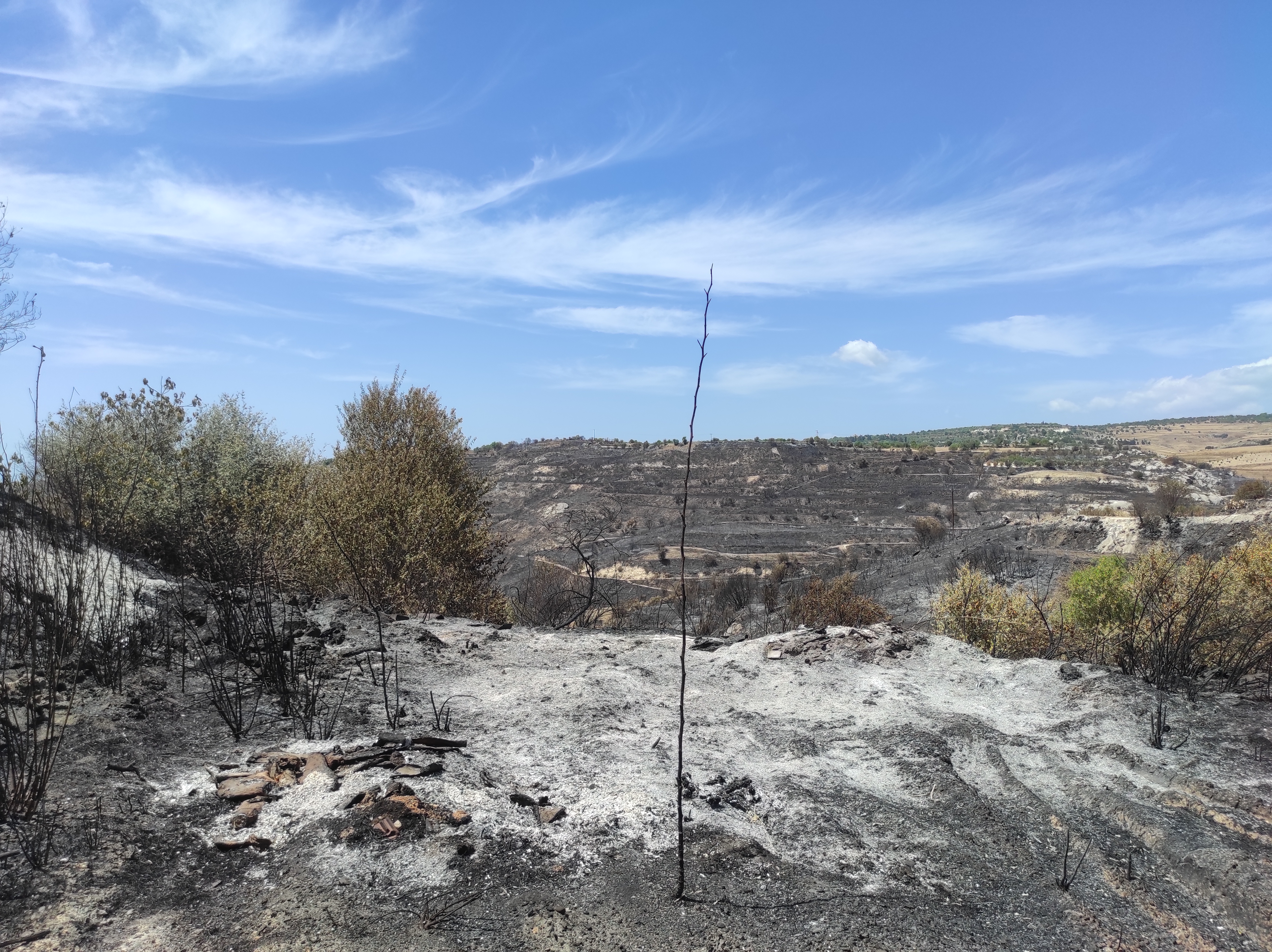Naked and worn-out electricity cables running through forested areas are a significant cause of fires and that risk, as well as the risk from illegal rubbish dumps, has been predictable for decades, Greens MP Charalambos Theopemptou said on Monday.
The MP’s statement to CyBC comes in the wake of various authorities scrambling to cope with their image control over both the causes and the handling of a series of fires in the last two weeks, including one which blighted the village of Psathi in the Ezousa valley of Paphos on Tuesday, and Farmakas and Fikardou in Nicosia on Saturday.
Authorities and the state have been lambasted in the media in recent days by distraught residents and environmentalists – including over the state’s failure to procure more than a single self-owned aerial firefighter craft.
Like a broken record on repeat, the same tropes were played out by the authorities in response: insistence that the state-of-preparedness had been good, praising the heroism of the volunteers and firefighters, and urging “personal responsibility” and vigilance from the public.
The Farmakas fire was one of 32 fires in the space of 24 hours as temperatures across the island soared. The fires service soon after its outbreak blamed the fire on a short circuit at an electricity transformer in the area, which was promptly contested by the electricity authority (EAC) with the counterclaim that power continued to travel through the lines for hours after the blaze was noticed.
It was a déjà vu of an episode which unfolded almost a year ago after the Elitzies fire in the Paphos forest, which occasioned the same blame-game between the EAC and the forestry service, with the forestry director unequivocally blaming the EAC’s lack of maintenance of installations and the authority denying the accusation.
As a result of that palaver, the Stavros tis Psokas forestry station is now -ten months on- still powered by emergency generators, with plans for undergrounding and insulating of cables lost “in the works”.
On Monday, Agriculture Ministry Director Andreas Gregoriou seconded the view that the fire in Farmakas was likely caused by the EAC installation after an onsite investigative team determined this as its preliminary finding.
Speaking to CyBC, EAC spokeswoman Christina Papadopoulou reiterated that until the “final investigation by an independent team” assigned by the EAC, was completed, no conclusions could be drawn.
Insulating naked wires running through sensitive, mainly forested, areas, is an ongoing project diligently being carried out by the EAC, in collaboration with forestry and game service staff tasked with pointing out the “highest risk” spots, she said.
But Greens MP Theopemptou pointed out that the very fact of the electric grid running over large swaths of forest and (often abandoned) rural land was an a priori problem, predictable by experts for years.
“When the grid was designed all the major power plants were built in the southeast, with the result that overland wires have to travel large distances over mountains,” Charalambous said. This original design flaw has now boomeranged and the only solution is to upgrade the entire network as soon as possible, he said, noting that a study by the forestry department dating back to 2012 showed degraded cables consistently in the top three causes of fires.
“We haven’t done any upgrades in years. When areas zoned for provision grow, it becomes a matter of who will pay for upgrades. The [heat stress on the grid] is only made worse by the inclusion of PV parks,” the MP added, in which poor planning is also an issue.
As for the illegal rubbish dumps, greater supervision and a systematic clean up is imperative, the MP said.
The so-called “green points” which are often “a kilometre radius of waste dumped after hours”, is not an ideal solution, Theopemptou argued. Much better options are possible, such as allocating specialised premises within residential neighbourhoods for people to drop off various items, say batteries or small appliances, for processing.
These collection centres could also be organised by designated day per week when residents can dispose of their items or even be told to put them outdoors for collection, with a note on whether or not they still work, to be donated or recycled accordingly.
Another far more sensible option, the MP argued, would be to establish local cooperatives, staffed with persons requiring community support, who can dismantle or repair items and separate out antiques, for recycling, donation or other use, without the need to put out tenders and bids, he said.






Click here to change your cookie preferences